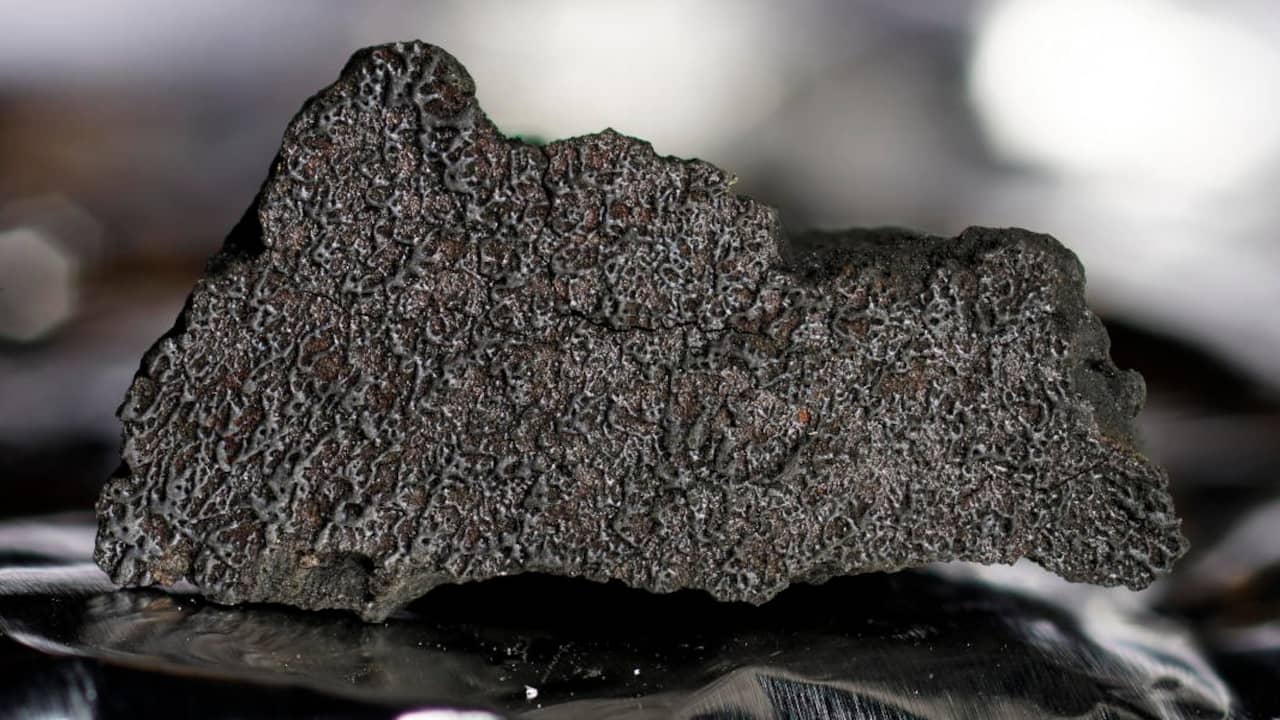A meteorite that hit a British driveway offers strong clues to the origin of life on Earth. Space rock contains water, which is very similar to the water on our planet.
Water was crucial for the emergence of life on Earth. But scientists still aren’t sure how that water got here. A widely held theory is that asteroids outside our solar system brought water with them. The meteorite that crashed into the English village of Winchcombe in February 2021 confirms this theory.
When an asteroid or meteoroid hits the Earth, we call it a meteorite. The Winchcombe specimen is one of the most undisturbed meteorites ever found, says researcher Ashley King of the British Natural History Museum.
Investigators arrived soon after the impact. As a result, the stone was barely weathered. For example, rain may have clouded the meteorite research.
In the laboratory, the meteorite was found to be no less than 4.6 billion years old. The impact was also reflected in many CCTV images in the residential area. This allowed the researchers to calculate where the space rock came from. Probably from the asteroid belt between Jupiter and Mars. It took the meteorite nearly 300,000 years to get here.
According to King, the composition of the water in the meteorite found matches the water in our oceans. “This could mean that asteroids were the main source of water,” she says. The research was published in the scientific journal The progress of science.


